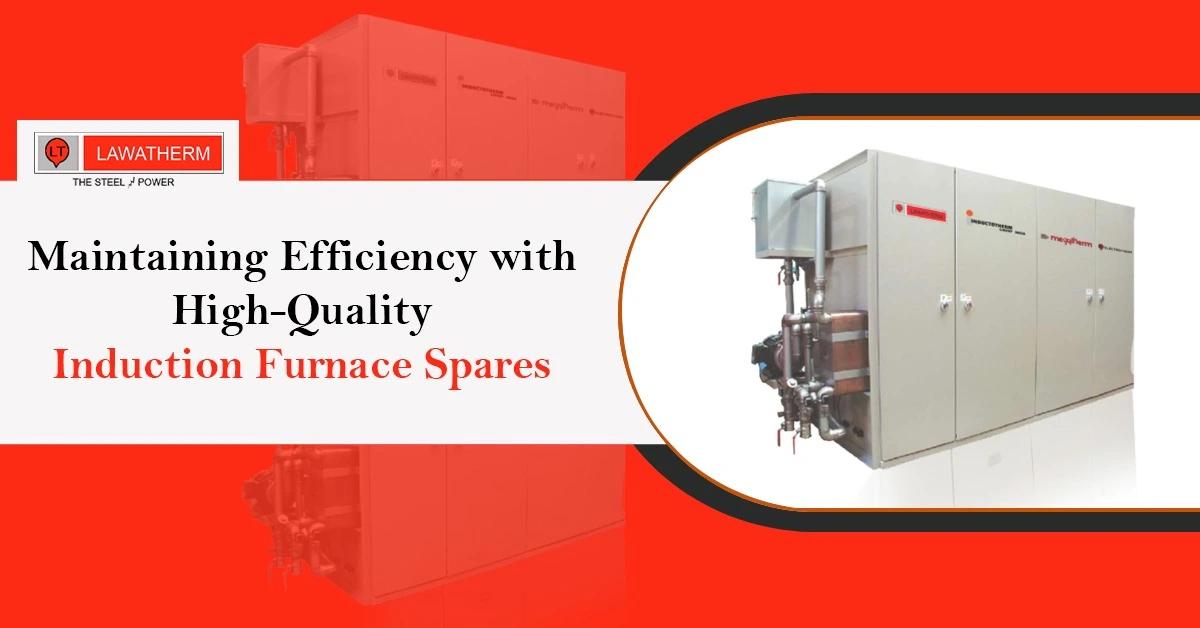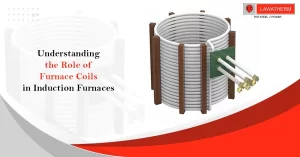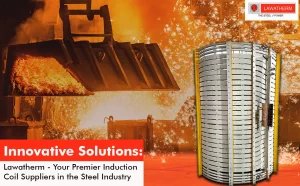Running an induction furnace isn’t complicated—until it is. Most of the time, it just works. Metal melts, power flows, and coils heat up. But when something breaks down? Everything stops. And that’s where good spares matter more than you’d think.
I’ve seen this happen more than once. A small crack in a refractory lining, a loose water cooled cable terminal, or just an old induction coil that’s not transferring power quite right anymore. These things creep in. Not dramatic failures—just the kind that quietly erode performance until you’re left wondering why your furnace isn’t holding up like it used to.
The Small Stuff Adds Up
You don’t always notice how much wear your induction furnace components take until you’re knee-deep in repairs. Heat, stress, and time—they all take their toll.
- Induction coils do most of the heavy lifting. If they’re worn or poorly made, you’ll get uneven heating, which messes with the melt. Not immediately, maybe, but give it time.
- Refractory linings protect your furnace body. Once they start to break down, you’re racing against leaks or worse. It’s easy to put off replacing them until you’re dealing with damage.
- Power units should deliver steady current, but if the spares are low quality, you might end up chasing small performance issues that add up.
- And cooling systems—especially those involving water cooled cables—need regular checks. A small blockage or corrosion on a terminal can push temperatures higher than you’d like. You may not catch it right away.
All these parts work together, but they don’t wear out at the same rate. You replace one, then forget the rest… and problems resurface.
Why I Stick with Lawatherm
I’ve worked with a few suppliers over the years. Some were fine. Others were… let’s say hit or miss. What I like about Lawatherm is that they focus on the full system. Not just one part or another.
They offer everything—induction coils, copper induction coils, hydraulic spare parts, furnace spare parts, and even flow full cone nozzles. You don’t have to juggle five vendors to get what you need.
More than that, their parts hold up. I don’t mean perfect. Nothing is. But I’ve noticed fewer issues, fewer call-backs, and definitely less downtime.
Also, and this might sound small—they help you figure out what’s wrong. Not just sell you a replacement. That kind of support, especially when you’re troubleshooting under pressure, matters.
You Don’t Have to Overthink It
Most of the time, good maintenance is just paying attention. Don’t wait until your furnace starts acting up. Take a look at your spares shelf. Are you stocked up on what usually wears down? Got backup induction furnace components? Are your crane spare parts and hydraulic cylinders in shape?
If not, well… maybe start there.
You don’t need perfect conditions. Just working parts, a bit of attention, and a supplier you can trust when something gives out. That’s usually enough to keep the whole thing running without too many surprises.




